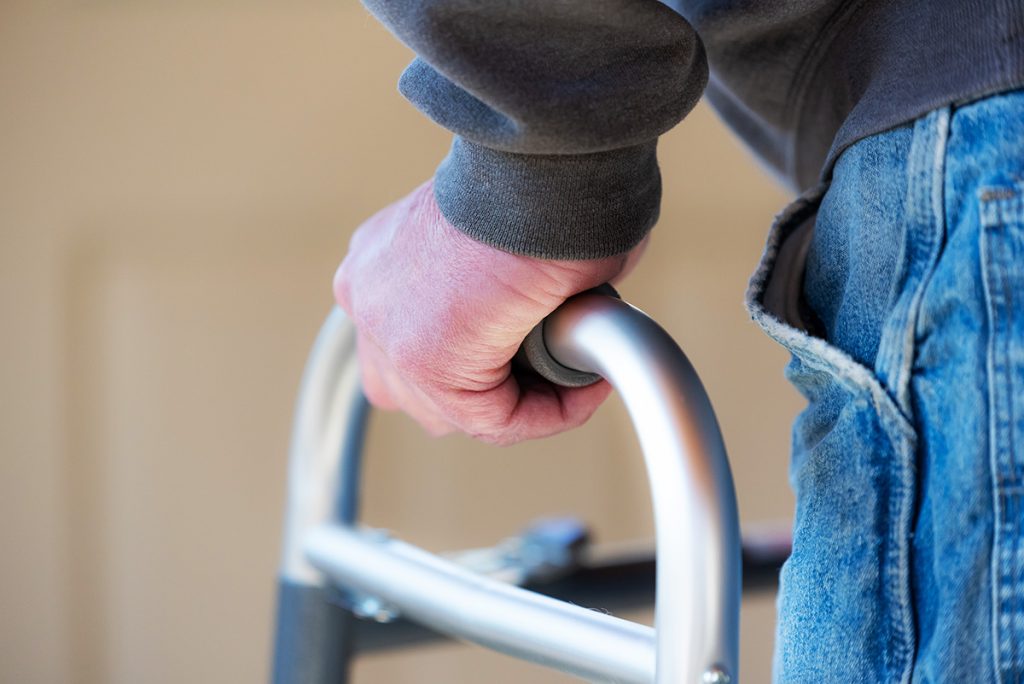

Respite Care: Care for the Caregiver
Caregiving can lead to physical and emotional exhaustion
by Chloe McGrath
Having trouble caring for your elderly loved ones? Do you feel increasingly stressed, guilty, and physically and emotionally exhausted? It is okay to reach out for help if you are feeling overwhelmed.
While our seniors want to live at home, there are health needs that can prevent them from living independently, so in many cases, the responsibility of taking care of a loved one falls to primary caregivers and can include other family members. This may present challenges and create animosity, so it could alter the dynamic between family relations.
Utilizing respite care might be the solution you and your elderly loved ones are looking for!
What is Respite Care?
Respite Care is a service designed to temporarily relieve primary caregivers of some of their responsibilities, so it allows their loved ones to remain in the comfort of their own homes and continue to receive care. Respite care is typically short-term relief for the primary caregiver, so it can be arranged for several hours, days or even weeks. There are several different options to consider. There are home care agencies, healthcare facilities or adult day care centers you could consider depending on the needs of your loved one.
Benefits of Respite Care
Respite care can provide you with the relief you need to concentrate on your own health while knowing your loved ones are in the capable hands of caregivers. Other benefits include:
Reduced stress and exhaustion
Allows you to maintain a balance between work, family, and other priorities
Licensed and experienced caregivers
Reduces any strained relations with family members
Costs of Respite Care
If seeking respite care through a home care agency, typically they charge per hour of care. Most insurance plans don’t cover respite care costs, however there are some long-term care insurance policies that do offer some coverage. Make sure to reach out to your insurance agent to see if you are covered. Medicare will also cover most of the cost of up to 5 days in a row of respite care in a hospital or skilled nursing facility for a person receiving hospice care. Hospice companies and Medicaid may also offer some assistance. For Veteran families, you could find a home care agency approved through the U.S. Department of Veterans Affairs, so they can assist with care that is covered by VA benefits if the client qualifies.
Here is a link to the VA for resources to help care for your Veteran at home
https://www.va.gov/geriatrics/pages/Homemaker_and_Home_Health_Aide_Care.asp
Here is where you can search community care agencies in your area, so you can find assistance for your Veteran. First you enter in your zip code, then select community care and then in home supportive care.
https://www.va.gov/find-locations/
Determine your eligibility for respite care by coordinating and consulting with your healthcare and insurance provider.
Assisting Hands Home Care can help!
In our busy lives, sometimes it can be hard to balance everything, so let Assisting Hands Rockford help lessen some of that burden for you. With our respite care services, we will work with you to provide qualified caregivers, so he/she will be tailored to your loved one’s needs. For Veterans and their families, we can also assist with exploring the VA Homemaker and Aid and Attendance programs to help see if you qualify, and these are free benefits for Veterans and their surviving spouses.
Call to schedule a free consultation with us at 815-884-CARE, so we can bring the relief you need!
Other Resources
For some respite care is not an option, so there are other alternatives you can consider. Many faith-based caregiving organizations can arrange social visits, so this will allow you some time for yourself, also Elder Helpers and Senior Corps can also offer support.
References
AARP, Updated May 14. “Create a Respite Plan to Give Family Caregivers a Break.” AARP, https://www.aarp.org/caregiving/life-balance/info-2017/respite-care-plan.html?cmp=KNC-DSO-CAREGIVING-SelfCare-18782-Bing-RespiteCare-Exact-NonBrand&gclid=9963f65f7b841dcd067b94a904ed17f6&gclsrc=3p.ds&msclkid=9963f65f7b841dcd067b94a904ed17f6&utm_source=bing&utm_medium=cpc&utm_campaign=Caregiving-SelfCare-NonBrand-Exact&utm_term=respite+care&utm_content=Respite+Care.
Joubert, D. “Respite Care.” Canadian Family Physician Medecin De Famille Canadien, U.S. National Library of Medicine, Oct. 1983, https://www.ncbi.nlm.nih.gov/pmc/articles/PMC2153921/?page=1.
“Respite Care.” Alzheimer’s Disease and Dementia, https://www.alz.org/help-support/caregiving/care-options/respite-care.
Robinson-Lane, Sheria G. “Accessing Respite Care for Persons with a Disability.” Archives of Physical Medicine and Rehabilitation, U.S. National Library of Medicine, Oct. 2017, https://www.ncbi.nlm.nih.gov/pmc/articles/PMC5763479/.
